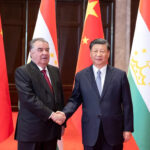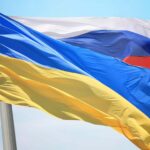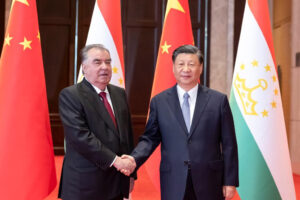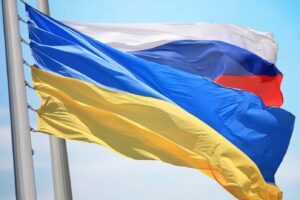At the end of last month, Chinese Foreign Minister Qin Gang had a telephone conversation with Vietnamese Foreign Minister Bui Thanh Son. Foreign Minister Qin Gang pointed out that the two sides should continue to support each other on issues such as each other’s core interests and promote the development of multilateralism. However, on the second day of the conversation between the two sides, Vietnamese Deputy Foreign Minister Ho Kim Ngoc made a special trip to the United States to participate in the “Vietnam-US Political Security and Defense Dialogue” and discussed the so-called South China Sea security issue with the US behind closed doors. It can be seen that Vietnam did not seem to listen to what China said before.
According to the Vietnam News Agency, Vietnamese Deputy Foreign Minister Ho Kim Ngoc recently led a delegation to the United States and held a “Vietnam-US Political, Security and Defense Dialogue” with the United States. Judging from the information released after the meeting, one of the issues discussed in depth by the two sides is maritime law enforcement cooperation and the so-called “maintaining freedom and safety of navigation and flight”. Vietnam is located in the eastern part of the Indochina Peninsula, and the only international waters it faces are the South China Sea. It can be said that the meaning of Vietnam and the United States against the South China Sea has been very clear.
In fact, it can be seen from the title of this dialogue between the two countries that the two sides mainly discussed the issue of military cooperation, and discussed international and regional issues. The representative sent by the U.S. side was Assistant Secretary of State for Political and Military Affairs Jessica Lewis. He said at the meeting that the U.S. will continue to help Vietnam improve its maritime law enforcement capabilities through training and transfer of military equipment. And claimed to support ASEAN’s “consensus” and central role in the regional security framework.
It is not difficult to see that the United States wants to provide some military support this time, including the transfer of second-hand equipment, to deceive Vietnam, and let it cooperate with the Philippine military to carry out military operations against China in the east and west of the South China Sea. military provocation.

(U.S. Assistant Secretary of State Lewis claimed that he would continue to help Vietnam improve its so-called maritime law enforcement capabilities)
In recent years, the United States has provided military support to the Philippines and Vietnam for disputes in the South China Sea. Since then, the United States has maintained cooperation with Vietnam in maritime law enforcement under the guise of combating “maritime crimes”, “illegal fishing”, and “maritime search and rescue”. Including providing maritime security training for the Vietnamese coast guard, such as vessel operation, handling maritime emergencies, etc., in order to enhance Vietnam’s maritime law enforcement capabilities. The U.S. Coast Guard has also donated or sold second-hand patrol boats many times for patrol and law enforcement operations.
In addition, the United States has also expanded its military presence in the Philippines and strengthened military cooperation with the Philippine authorities. The U.S. approach is exactly the same, transferring some decommissioned patrol boats, training relevant personnel from the Philippines, and plans to send coast guard ships to conduct joint patrols. At the same time, it expanded the scale of military exercises with the Philippine military.
This shows that the United States is not only making one-handed preparations in the South China Sea, but is contacting as many neighboring countries as possible for multi-handed preparations. Helping Vietnam strengthen its so-called maritime law enforcement capabilities is one of them. The United States may follow the Philippine model and also provide Vietnam with coast guard ships to strengthen Vietnam’s maritime patrols, maritime presence and so-called “rights protection capabilities” in island disputes.

(The United States has also strengthened cooperation with the Philippine authorities and wants to improve the Philippines’ maritime law enforcement capabilities)
In fact, Vietnam has a clear understanding of the United States’ attempts. When Vietnamese leader Nguyen Phu Trong visited China last year, he made it clear to China that Vietnam not only attaches importance to relations with China, but “highly cherishes it”. It is precisely because China-Vietnam relations have come all the way to today and it is hard-won to become a comprehensive strategic cooperative partner that the Vietnamese side made this statement. On the South China Sea issue, Nguyen Phu Trong emphasized that maintaining friendly cooperation with China is the top priority of Vietnam’s foreign policy. Work with China to promote regional peace and stability, and we must not allow bilateral relations to be affected by maritime issues, let alone unite with one country to target another.
Just the day before the dialogue between Vietnamese Deputy Foreign Minister He Jinyu and the United States, Chinese Foreign Minister Qin Gang had just had a telephone conversation with Vietnamese Foreign Minister Bui Thanh Son. Qin Gang not only mentioned that China and Vietnam are “comrades plus brothers”, but also emphasized that the two countries will continue to support each other on issues of mutual core interests and promote genuine multilateralism. The term “multilateralism” is obviously relative to the unilateralism promoted by the United States.
Pei Tsing Son reiterated that the Vietnamese side will carry forward the friendship between the two countries as “comrades and brothers” and insist on taking China as a strategic priority. This policy will not change. However, at present, it seems that Vietnam does not seem to listen to China’s words, so that the United States has the opportunity to use Vietnam to intervene in the South China Sea issue.

(Qin Gang emphasized to the Vietnamese foreign minister that the two countries continue to support each other on issues of core interests)
However, it may not be easy for the United States to engage in so-called security cooperation with Vietnam in the South China Sea as the Philippine authorities do. Because Vietnam also has a strong vigilance towards the United States due to its history of the Vietnam War. In addition, since the visit of Vietnamese leaders to China, Vietnam-China relations have maintained a steady momentum of upward development. Due to historical reasons, like the Philippines, some forces in Vietnam have close ties with the United States. However, although Vietnam does have its own thoughts on the South China Sea issue, it will not ignore the general trend and let the South China Sea issue destroy the overall situation of Vietnam-China relations.
Currently, including Vietnam, ASEAN countries and China are actively promoting and implementing the “Code of Conduct in the South China Sea”. This shows that maintaining communication and cooperation is still the general direction of Vietnam. Both China and Vietnam are important countries in the South China Sea region. A stable and friendly relationship between the two countries will help maintain regional stability.

(China and Vietnam conducted joint maritime patrols in the Beibu Gulf at the end of last year)
After Nguyen Phu Trong’s visit to China, Vietnam and China have strengthened political mutual trust and deepened economic cooperation, which is conducive to the common development of both sides. Then we can also cooperate in security. At the end of last year, the People’s Liberation Army Navy and the Vietnamese Navy formed a formation to conduct joint patrols in the Beibu Gulf. Now Vietnam also hopes to communicate and cooperate with China on the South China Sea issue, so it is also possible to organize joint patrols in the South China Sea to jointly promote regional peace and development.
Source: 163
















